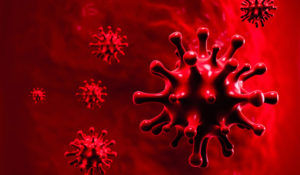RSNA, the Radiological Society of North America, has assigned a special Covid-19 Task Force to publish a document of practices to be followed by radiology departments. Considering the present scenario of the Covid-19 pandemic, a large number of hospitals, clinics and institutions are also establishing their local guidelines. The aim of these guidelines is to protect the general public as well as the healthcare workers from the attack of Covid-19 infection.
The major guidelines include preserving the PPE, maintaining critical functions of radiology, and providing sufficient critical care resources during the pandemic situation as well. While these guidelines are applicable during the sufficient availability of resources. In times of reduced supply of resources, alternative methods and mitigating steps may be taken to provide the best possible care to the patients, without compromising the protection of healthcare workers.

Features of RSNA COVID Practices
Most importantly, the radiology departments must stay prepared during the Covid-19 outbreak as well. They must follow suitable procedures and policies to allow continued patient care and operations during extreme emergency cases. These policies will be helpful in giving the best healthcare to infected patients while maintaining radiology support to the entire health and hospital system.
The best practice guidelines developed by RSNA COVID-19 Task Force have been developed to provide operational guidance to radiology teams during the COVID-19 situation. They provide information and tools to help them provide the best care to the patients in a safe and efficient manner, and at the same time protect patients and healthcare workers from possible exposures.
The guidelines cover areas of procedures and precautions for confirmed or suspected COVID-19 cases, screening for the infection, post-imaging cleaning, elective imaging, chest imaging, social distancing, pregnancy, workflows, meetings, well-being, and staff management. The authors also advised radiology departments to form crisis management teams, who will conduct standing meetings for assessment of the situation, the adaption of staffing, and other required approaches.
Some of the RSNA Best Practices on COVID
RSNA has published a huge list of best practices to be followed during the COVID pandemic. Following are some of the few examples for a broad idea:
- Any non-urgent outpatient imaging and elective diagnostic examinations should be postponed
- All patients at the front desk should be assessed for symptoms like fever, sore throat, dyspnea, new dry cough, etc.
- COVID-19 testing should be done prior to any imaging procedures.
- Hospital staff that needs to be in direct contact with COVID-19 patients should be provided fit-tested N95 masks. Facial hair should be removed for proper fitting of the mask
- All healthcare workers should wear isolation/surgical masks in the clinical facility, whether giving direct care to the patients or not
- Standard antiseptic wipes should be used to clean the equipment after the imaging procedure is complete. The wipes should have quaternary alcohol or ammonium with approved disinfectants
- HEPA filtration should be used to circulate air and shorten the time needed to keep the room closed
- Preference should be given to patients who have a higher likelihood of developing poor results of the infection, such as those with diabetes, hypertension, chronic respiratory disease, cardiovascular disease, especially those who are more than 65 years of age
- The majority of meetings should be taken via video calls on teleconferencing software, such as Skype and Zoom. A safe distance should be maintained between the members during physical meetings
- Communications over the phone should be preferred between radiologists and other staff members over personal communications
- Radiologists should be allowed to perform their clinical procedures through remote access as far as possible
- A departmental crisis management team should be formed, that must comprise of leadership-level technologists, radiologists, and staff members, who can assess the situation and adapt to changes as per circumstances
RSNA is dedicated to providing reliable resources to the community of radiologists by preparing management guidelines for patients as required by the COVID-19 situation. With the help of their special Task Force, they can make extensive effort to educate radiologists and healthcare workers about the effects of the pandemic. They have also developed the required tools for helping radiologists handle such a noble crisis situation.
Since these are unusual times that nobody has seen in their life, it has become all the more important for the community of radiology to working in conjunction with each other. With an aim to develop resources required by healthcare professionals across the globe, RSNA has gathered expert and experienced industry leaders to manage the crisis.
The Task Force has been working with devotion to detect and prioritize the needs of radiology in the pandemic situation. A group of radiologists from different backgrounds and geographic locations is formed to work at the forefront of COVID imaging and diagnosis in terms of algorithm development, institutional and national policies, guidelines creation, coronavirus research, etc.
We, at sepStream®, are dedicated to providing information and tools to the radiologists, so that they can be well-equipped to manage the unusual outbreak. We can also guide you through the departmental policies, with the help of relevant radiology reporting tools and educational resources.